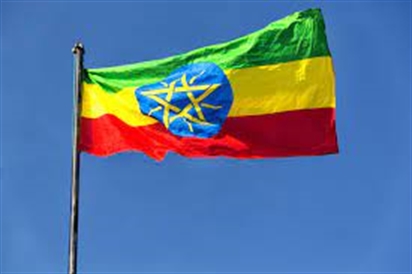Tue 07 Sep 2021
By Admin

Client: UNDP Ethiopia/Ministry of Peace, Federal Democratic Republic of Ethiopia
Programme: Peace Messaging, Crisis Communication, and Social Media Training
Delivered: Addis Ababa, Ethiopia December 2020
The challenge: To strengthen and develop the skills and knowledge of best practices of Higher Officials and Communicators to deliver highly effective communications across a range of audiences, and situations, and using a range of media.
The Ministry of Peace in Ethiopia provides communications support and professional development across eight government bodies, ranging from the Federal Police Commission to the National Disaster Risk Reduction and Management Commission. Challenges included communicating in a crisis, connecting with youth, women, and local communities, strategic communications planning, professional communications, tackling disinformation, and using social media and presentation tools.
In a country with frequent local and regional conflicts that is also rapidly evolving its democratic systems, communications must meet rising expectations for greater transparency and accountability and rapid response amid a fast-evolving media landscape and often fractious social media space. The stakes were urgent for this whole Ministry initiative and this was shown in the commitment by the UNDP Ethiopian Country Office, to urgently deliver the training during a global pandemic.
Dods’ response: Stage One: Design. Dods’ designated trainers and programme manager worked closely with the Ministry of Peace/UNDP representatives during the design phase. Training needs analyses of the Higher Officials and the Expert Communicators were distilled through a questionnaire sent to both groups, with follow-up interviews conducted of Higher Officials. A request for a range documents was also made. Based on this research, five themes emerged for the Higher Officials: crisis communications, strategic planning, media interview preparation, managing the media narrative, and monitoring and responding to hate speech and fake news. For Communicators, the five themes that arose were on writing and speaking skills, fact-checking and fake news, storytelling, presentation skills, and social media management.
The lead trainer and co-trainer (a media expert based in Ethiopia) jointly conducted a media scoping study of international and national media vehicles during a one-year time frame, in order to anchor discussions, lead and design exercises, and create case studies relevant to the current situation. So, for example, a crisis communications module was tailored to a range of recurring crises, including ways to anticipate, plan and execute communications. Two separate, week-long programs were developed using a modular approach, some of which were shared between the two groups based on an overlap of key themes, and others which were exclusive to a group based on the needs’ analysis.
Stage Two – Delivery: The intensive, one-week programme was a combination of presentation, individual and group exercises, and interactive and engaging lively discussions. Part One comprised the Communicators training which consisted of a five-day, full-time workshop, with many in-person presentations and trainer feedback. Part Two comprised the Higher Officials training, which also consisted of a five-day, full-time workshop, that included a one-on-one coaching component and videotaped media interviews.
Impact: As many as 18 Communicators and 23 Higher Officials took part in the programme. Based on the evaluations, there was a high satisfaction rating with the content and its relevance, the interactive methods used, and the trainers themselves. Several participants commented that the pairing of the international and local trainer was useful in imparting a blend of international and national case studies and examples relevant to their international and national communications needs.
Testimonials
“The Topics and Exercises were relevant and directly related to our daily activities. They gave us direct, relevant elements for our day-to-day activities and work.” (Communications/PR, Ministry of Peace)
“This will give us confidence in our work, the quality of our work will be improved, we will start to use at least one or more of these techniques to address our information to our audiences, and our public relations works will be based on a plan and a strategy.” (Communications Director, ARRA, Ethiopia)
“It was participative and interactive. The content was organized, easy to follow and supported with data, pictures and video. The trainers were knowledgeable and well prepared.” (Communication Expert, Ministry of Peace, Ethiopia)
View all news